Abstract
In a survey of 461 women routinely attending family planning clinics those taking oral contraceptives had significantly higher mean systolic and diastolic blood pressures than those using non-hormonal contraception. There appeared to be a dose-response relation of blood pressure to the progestogen component of two oral contraceptives with an identical 30 μg ethinyloestradiol component. This supports the idea that the progestogen as well as the oestrogen component has an aetiological role in the rise in blood pressure. There was a significant correlation of blood pressure with duration of current use of oral contraceptive but not with total duration of use. There was also a significant negative correlation of blood pressure with time since oral contraceptives were last taken, and women who had stopped using oral contraceptives over a month previously had similar blood pressures to those who had never taken them. In women taking oral contraceptives those who had either a history of hypertension in pregnancy or a family history of hypertension had significantly higher mean blood pressures than those who did not. Both systolic and diastolic blood pressures correlated independently with weight and body mass index, but controlling for the effect of this and age did not affect the above relations. No significant differences in mean blood pressures were found between different ethnic groups, and there was no relation of blood pressure to reported marital state, social class, parity, smoking, or alcohol use.
Any oral contraceptive that has a less adverse effect on blood pressure has implications for general prescribing policy; thus even small differences in the progestogen contents of low-dose oestrogen pills may be important.
Full text
PDF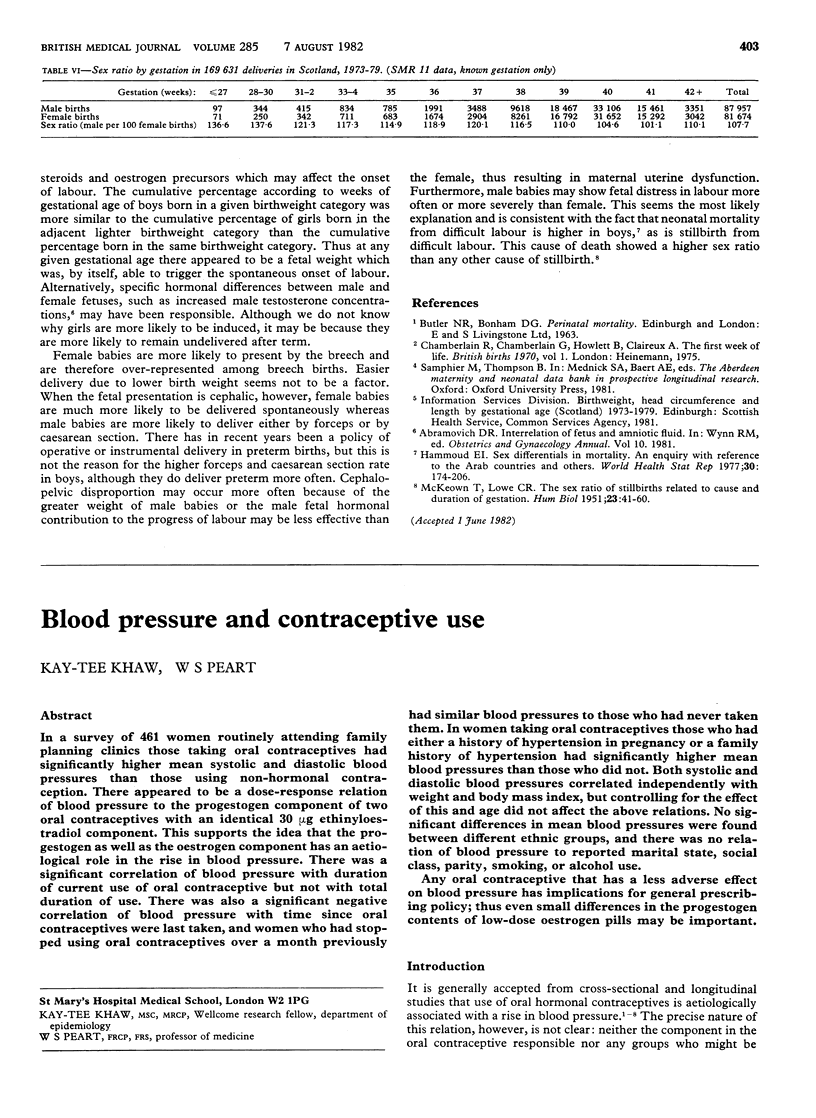
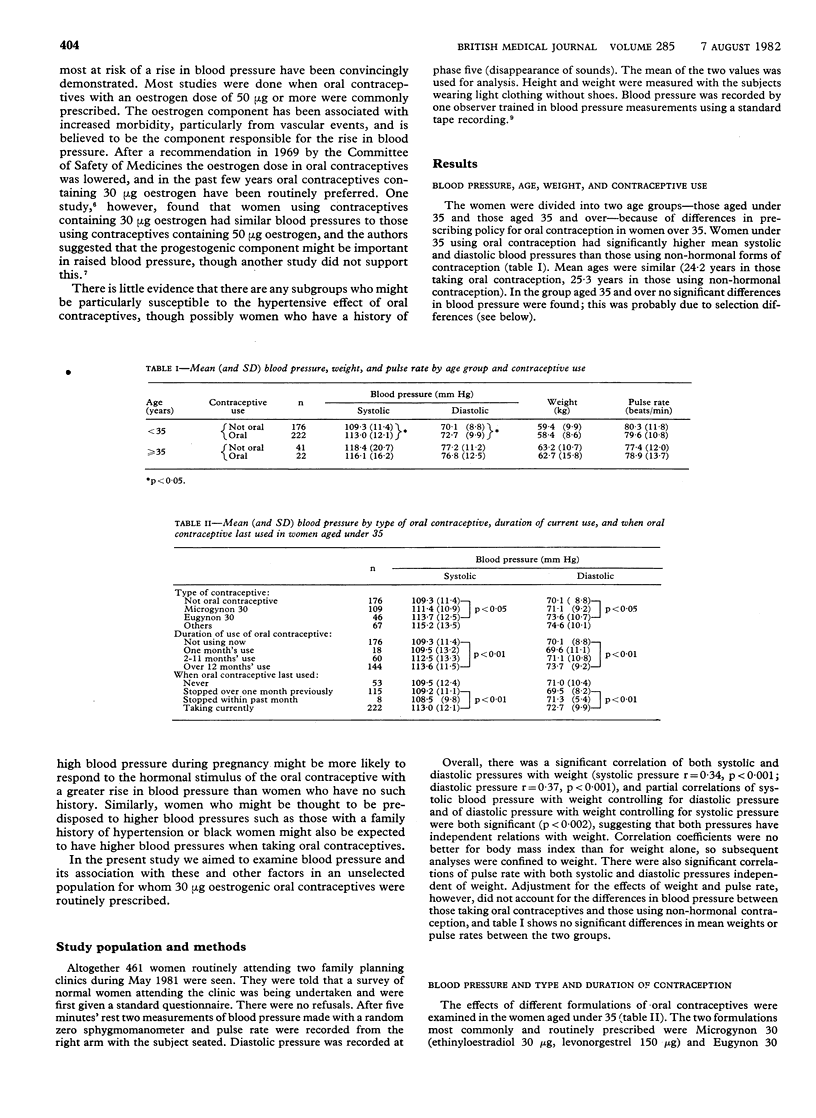
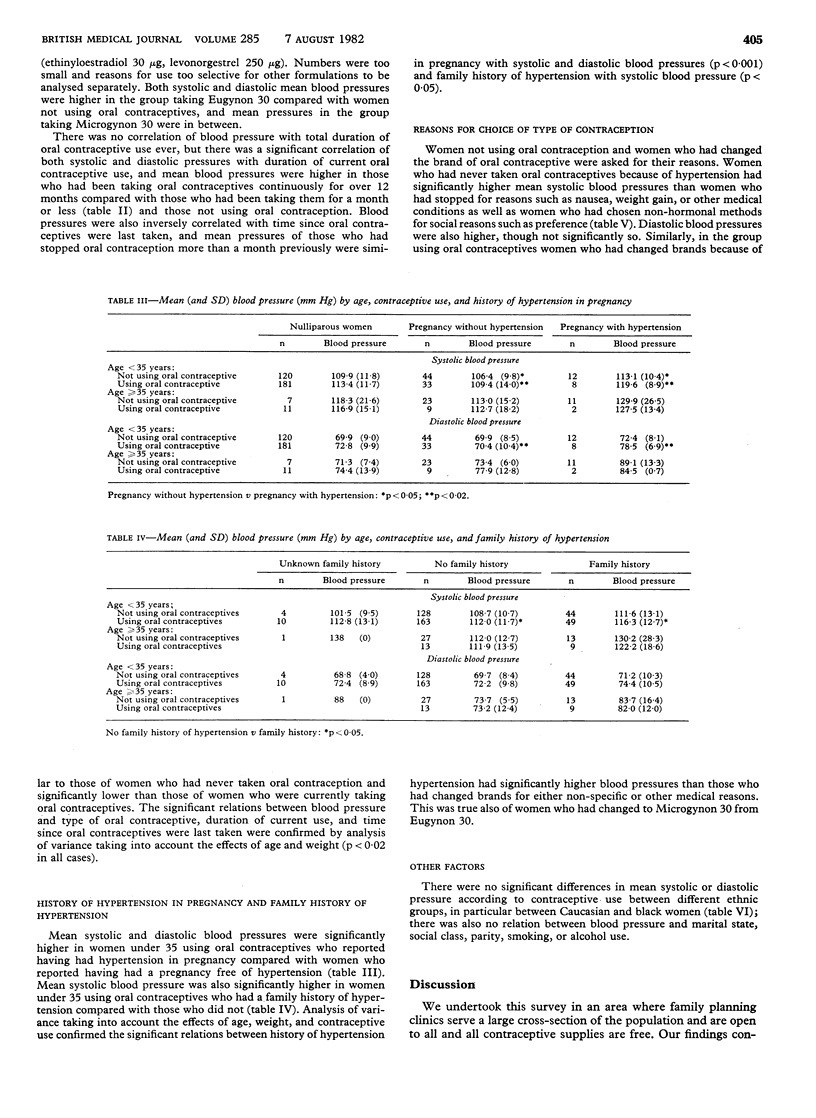
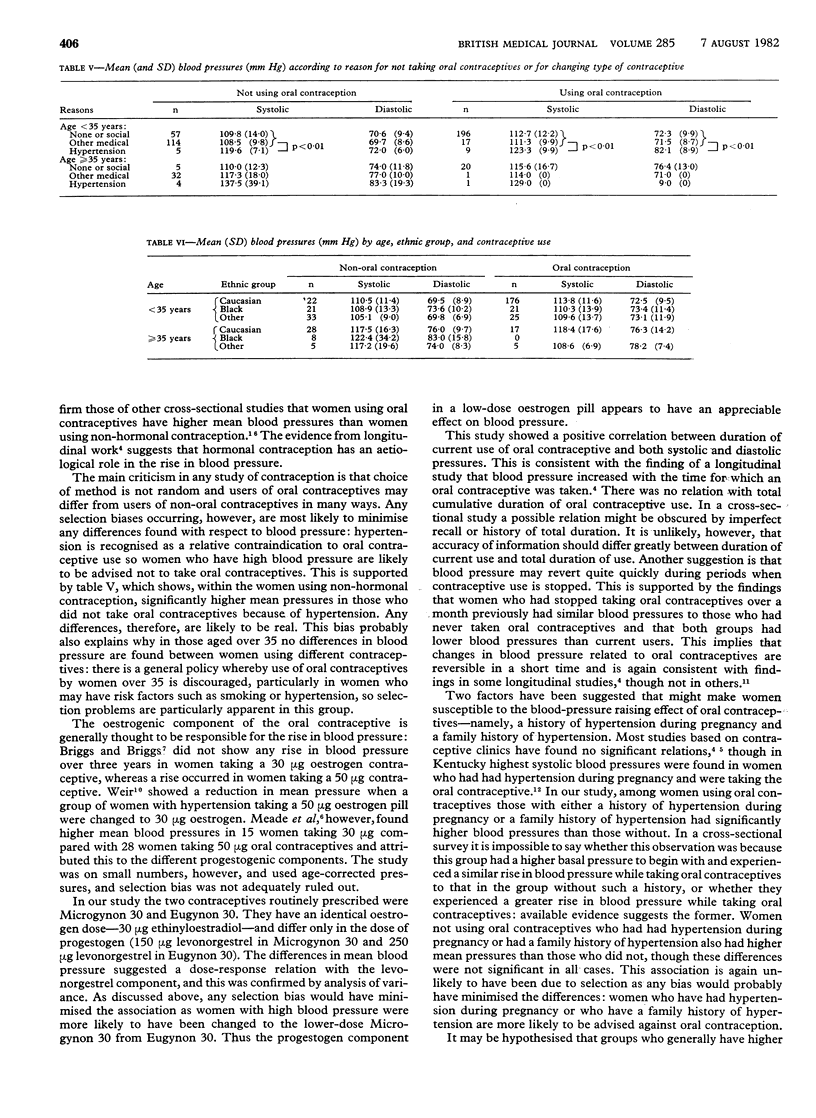
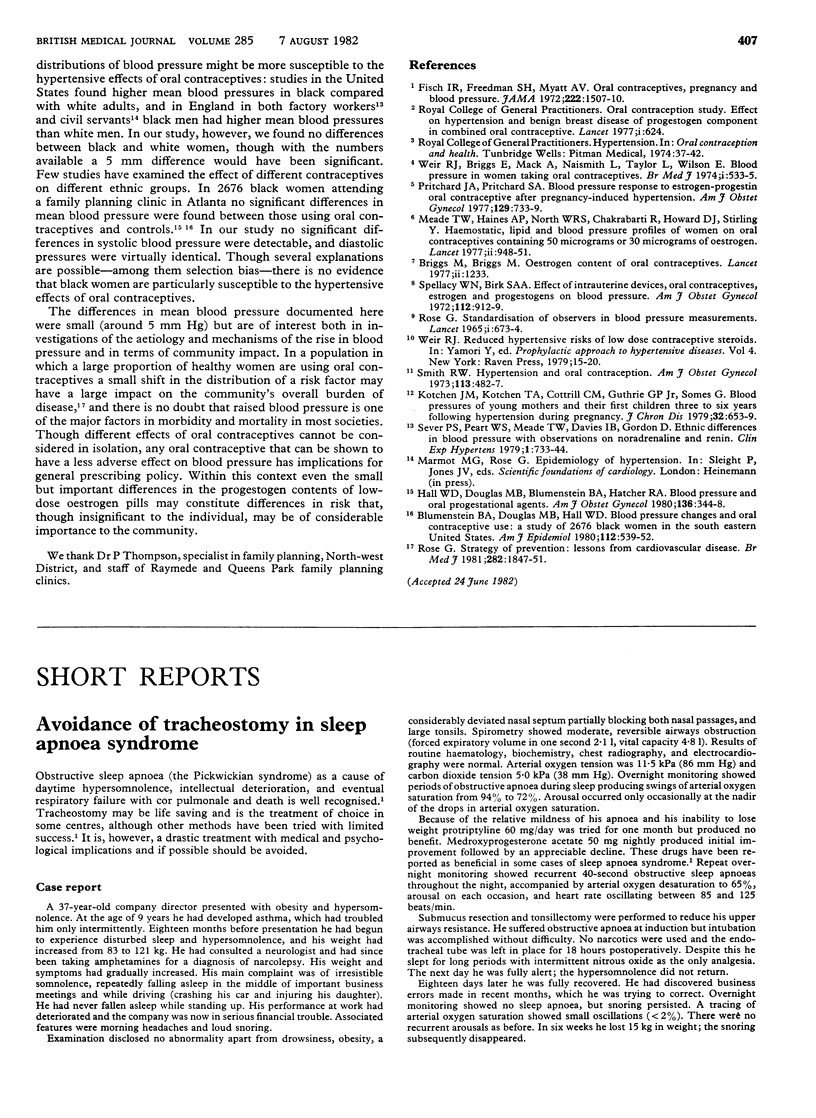
Selected References
These references are in PubMed. This may not be the complete list of references from this article.
- Blumenstein B. A., Douglas M. B., Hall W. D. Blood pressure changes and oral contraceptive use: a study of 2676 black women in the southeastern United States. Am J Epidemiol. 1980 Oct;112(4):539–552. doi: 10.1093/oxfordjournals.aje.a113023. [DOI] [PubMed] [Google Scholar]
- Briggs M., Briggs M. Oestrogen content of oral contraceptives. Lancet. 1977 Dec 10;2(8050):1233–1233. doi: 10.1016/s0140-6736(77)90475-5. [DOI] [PubMed] [Google Scholar]
- Fisch I. R., Freedman S. H., Myatt A. V. Oral contraceptives, pregnancy, and blood pressure. JAMA. 1972 Dec 18;222(12):1507–1510. [PubMed] [Google Scholar]
- Hall W. D., Douglas M. B., Blumenstein B. A., Hatcher R. A. Blood pressure and oral progestational agents. A prospective study of 119 black women. Am J Obstet Gynecol. 1980 Feb 1;136(3):344–348. doi: 10.1016/0002-9378(80)90860-1. [DOI] [PubMed] [Google Scholar]
- Kotchen J. M., Kotchen T. A., Cottrill C. M., Guthrie G. P., Jr, Somes G. Blood pressures of young mothers and their first children 3-6 years following hypertension during pregnancy. J Chronic Dis. 1979;32(9-10):653–659. doi: 10.1016/0021-9681(79)90095-x. [DOI] [PubMed] [Google Scholar]
- Meade T. W., Haines A. P., North W. R., Chakrabarti R., Howarth D. J., Stirling Y. Haemostatic, lipid, and blood-pressure profiles of women on oral contraceptives containing 50 microgram or 30 microgram oestrogen. Lancet. 1977 Nov 5;2(8045):948–951. doi: 10.1016/s0140-6736(77)90888-1. [DOI] [PubMed] [Google Scholar]
- Pritchard J. A., Pritchard S. A. Blood pressure response to estrogen-progestin oral contraceptive after pregnancy-induced hypertension. Am J Obstet Gynecol. 1977 Dec 1;129(7):733–739. doi: 10.1016/0002-9378(77)90390-8. [DOI] [PubMed] [Google Scholar]
- ROSE G. STANDARDISATION OF OBSERVERS IN BLOOD-PRESSURE MEASUREMENT. Lancet. 1965 Mar 27;1(7387):673–674. doi: 10.1016/s0140-6736(65)91827-1. [DOI] [PubMed] [Google Scholar]
- Rose G. Strategy of prevention: lessons from cardiovascular disease. Br Med J (Clin Res Ed) 1981 Jun 6;282(6279):1847–1851. doi: 10.1136/bmj.282.6279.1847. [DOI] [PMC free article] [PubMed] [Google Scholar]
- Sever P. S., Peart W. S., Meade T. W., Davies I. B., Gordon D. Ethnic differences in blood pressure with observations on noradrenaline and renin. 1. A working population. Clin Exp Hypertens. 1979;1(6):733–744. doi: 10.3109/10641967909068636. [DOI] [PubMed] [Google Scholar]
- Smith R. W. Hypertension and oral contraception. Am J Obstet Gynecol. 1972 Jun 15;113(4):482–487. doi: 10.1016/s0002-9378(15)32498-4. [DOI] [PubMed] [Google Scholar]
- Spellacy W. N., Birk S. A. The effect of intrauterine devices, oral contraceptives, estrogens, and progestogens on blood pressure. Am J Obstet Gynecol. 1972 Apr 1;112(7):912–919. doi: 10.1016/0002-9378(72)90811-3. [DOI] [PubMed] [Google Scholar]
- Weir R. J., Briggs E., Mack A., Naismith L., Taylor L., Wilson E. Blood pressure in women taking oral contraceptives. Br Med J. 1974 Mar 23;1(5907):533–535. doi: 10.1136/bmj.1.5907.533. [DOI] [PMC free article] [PubMed] [Google Scholar]


